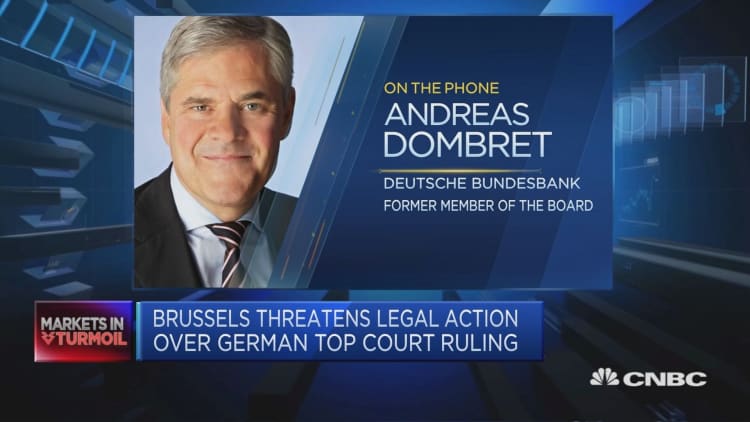
A German court's "very harsh decision" to rule against the European Central Bank seems to be "solvable" from a monetary policy perspective but raises political challenges for the region, a former member of the Bundesbank told CNBC Wednesday.
The German constitutional court said last week that certain aspects of the ECB's toolkit were illegal under German law. The ruling surprised policymakers across Europe and raised questions about whether the central bank will be able to pursue its monetary policy stance.
Speaking to CNBC Wednesday, Andreas Dombret, a former member of the executive board at the German central bank, said the issue seems "absolutely solvable" between the ECB and the Bundesbank.
However, "the biggest implication I see is for European politics going forward," he said.
The European Commission, the executive arm of the EU, is looking at whether to sue the German government in relation to the court's ruling.
In a statement, issued Sunday, European Commission President Ursula von der Leyen, a German national, said: "We are now analysing the ruling of the German Constitutional Court in detail. And we will look into possible next steps, which may include the option of infringement proceedings."
There are wider questions about the stability of the euro zone and whether EU countries that have standoffs with European institutions, such as Hungary and Poland, will use the German ruling to challenge European law.
"We need to come back to a common understanding of what we want regardless of this decision of the German Constitutional Court," Dombret said.
He added that the last six months of the year might be a good opportunity to address the future of the European Union — which is when Germany hosts the rotating presidency of the Council of Europe, meaning the country will have a determinant role in shaping the debate and policymaking in Brussels.


